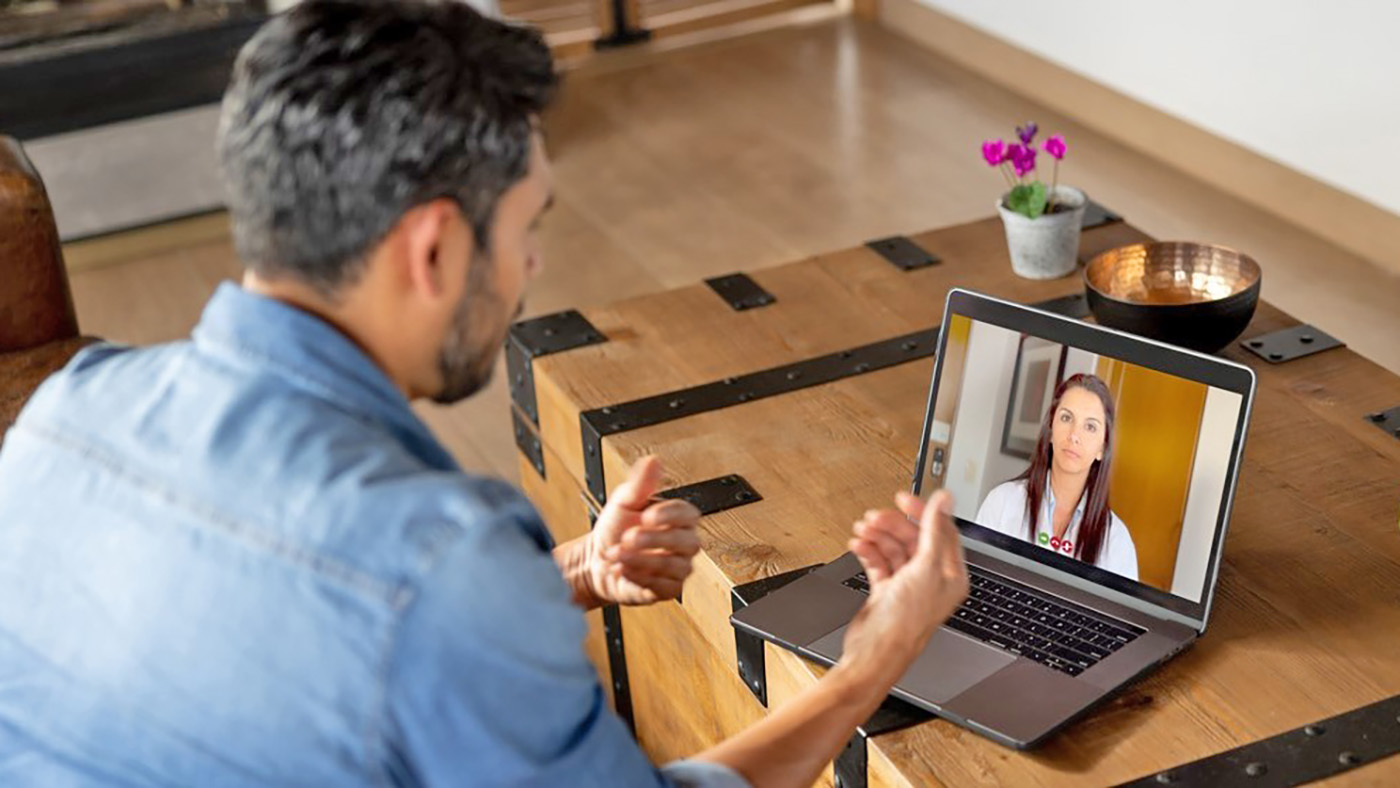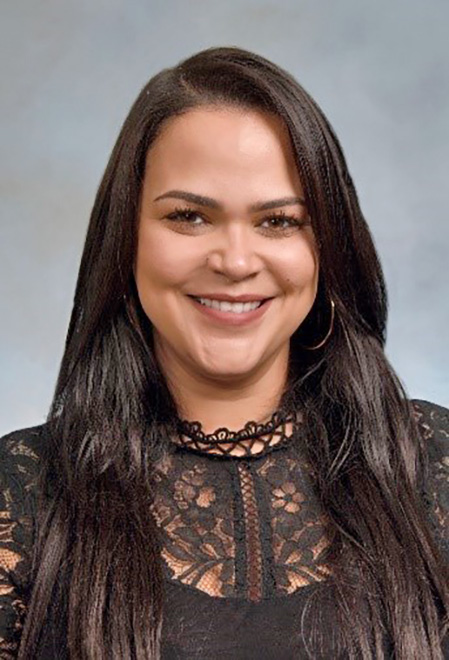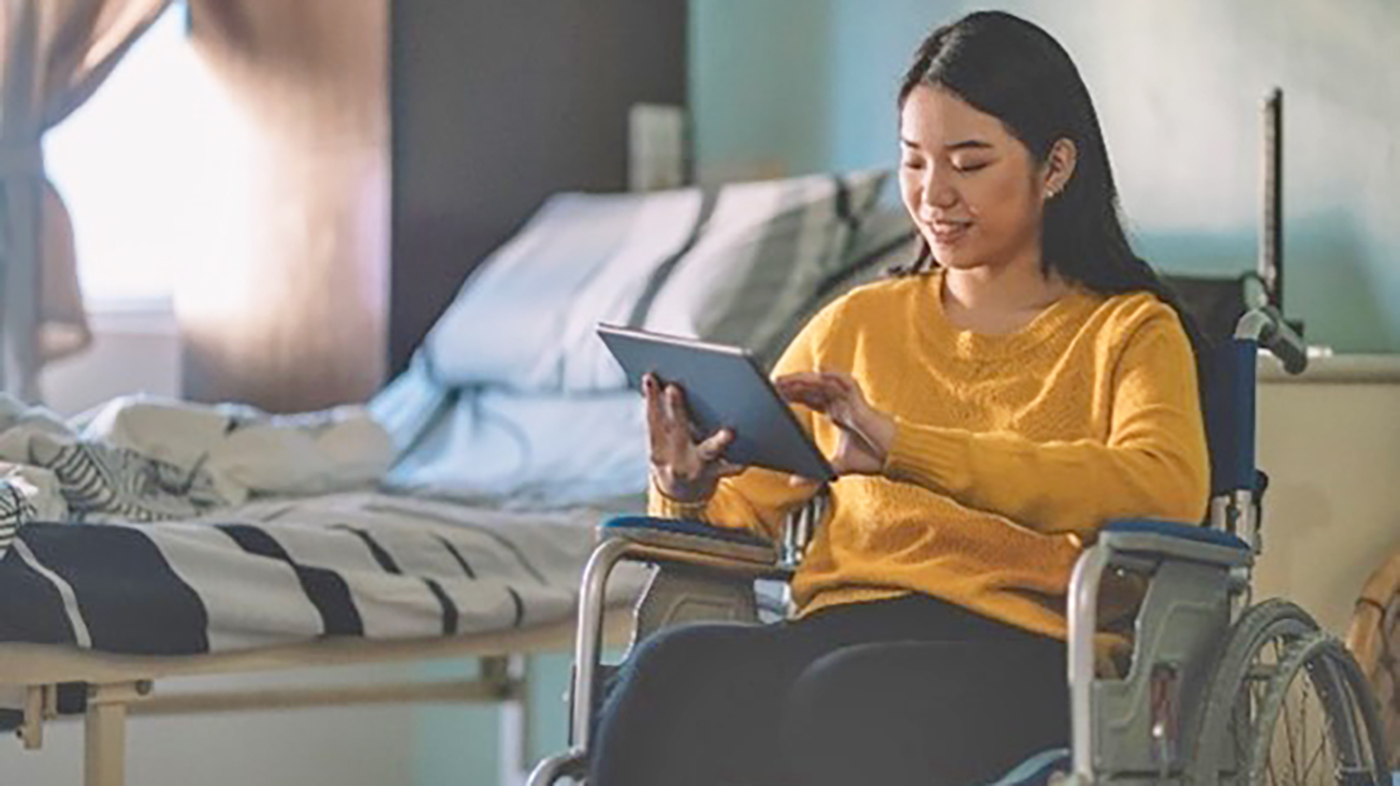VA providers are working together to provide culturally sensitive care for Veterans of all backgrounds. Recently, two VA neuropsychologists collaborated to conduct a neuropsychological evaluation of a bilingual Veteran through telehealth. That successful encounter reflects VA’s national goals to enhance VA’s healthcare services with telehealth.
“It seemed like the Veteran was really happy to talk to someone who could understand him,” said Dr. Ana Messler. “And there didn’t have to be that third party, an interpreter, going in between with things getting lost in translation. That was just really awesome to see that happen.”
A successful bilingual evaluation using VA telehealth
Messler, a neuropsychologist at the VISN 20 Clinical Resource Hub, received a request for services for a Veteran in a rural area. The referring provider was concerned about the Veteran’s safety and whether they were developing dementia. The Veteran needed a neuropsychological evaluation.
Neuropsychological evaluations include a diagnostic interview and observations as well as standardized cognitive testing to identify the cause of any cognitive, emotional and behavioral changes. The neuropsychologist then recommends treatments. The tests vary based on the symptoms each Veteran is experiencing. They measure abilities such as memory, attention, speed of thinking and problem solving. They can also predict the Veteran’s ability to manage independent living. Test performance can easily be affected by language and culture.
The evaluation takes several hours. And it can be conducted in person or through telehealth when the Veteran cannot come into a facility. The evaluation starts with a diagnostic interview followed by cognitive testing and a discussion of the results with the Veteran.
During their first meeting, Messler discovered the Veteran was most proficient in Spanish. She then decided that a culturally responsive evaluation would need to be conducted in his preferred language. The Veteran and his family welcomed this. Messler then reached out to Dr. Yesenia Serrano to consult about the case. Serrano is a bilingual neuropsychologist in VISN 4’s Clinical Resource Hub and often works with Spanish-speaking Veterans.
Traveling to a Spanish-speaking provider in another state wasn’t an option for the Veteran. Messler and Serrano then decided to work together on the evaluation using telehealth, collaborating on planning for the case. During the evaluation, Serrano was an interpreter and administered tests that involved language. Messler conducted the nonverbal portions of testing.
Working with a Spanish-speaking provider made the evaluation culturally relevant. It was more comfortable for the Veteran. It enabled him to be more open with his responses throughout. This resulted in stronger diagnostic clarity and more appropriate recommendations for treatment. His caregiver also appreciated the culturally relevant recommendations given by a provider of a similar cultural background. The Veteran and his family were so grateful for the care taken throughout the evaluation process that, during the feedback session, the Veteran exclaimed, “Te amo!”, Spanish for “I love you!”
The power of VA telehealth
“I think that’s just the power of being able to provide culturally appropriate evaluations and to have VA providers who have a variety of cultural backgrounds to help our Veterans feel comfortable,” Messler said. “Because he was able to disclose like that, we were able to get the information that we needed to help him.”
The COVID-19 pandemic brought opportunities to increase availability of and access to TeleNeuropsychology. VA neuropsychologists gained the tools to better serve Veterans all over the country, regardless of how far they are from a VA facility. These adaptations enabled Messler and Serrano to help the Veteran quickly and without traveling to a VA facility with a Spanish-speaking provider.
“Telehealth removes the barriers that we once had in reaching all Veterans and especially Veterans in rural areas,” said Messler. “And often, we can connect with family members in the home who might either just drop them off at the visit or not participate. Because of this collaboration, the Veteran was not only able to get language-compatible services but also to be rapidly evaluated by qualified providers and provided with very important treatment options that were really a turning point in his care. We were able to give the family ways that they could support him.”
“I think telehealth has helped provide equity and inclusion in terms of quality of services, access to services,” said Serrano. “And it provides opportunities for VA facilities to work together.”
Resources for VA neuropsychologists
Because of cases like this, Serrano and Dr. Julija Stelmokas, a neuropsychologist at New York Harbor VA, Brooklyn Campus, have worked with other neuropsychologists to facilitate education and enhance culturally sensitive neuropsychologic care for Veterans of all backgrounds.
“Veterans should be getting care in their preferred language, especially when it comes to mental health and neuropsychology,” Serrano said.
Messler’s experience with the case sparked her interest in ensuring that Veterans from all backgrounds can get the care that best suits their needs. She recently published a literature review, co-authored with two other neuropsychologists, including Serrano, to show the benefits of using TeleNeuropsychology services for culturally and linguistically diverse populations in the U.S. and its territories.
“I got really interested in learning more about TeleNeuropsychology with racially and ethnically diverse groups of Veterans.” said Messler. “I think a lot of times, people have these questions, have these cases, and don’t know where to go. We’re trying to empower people to really want to learn more, develop this competency area and take this on.”
Serrano said she wants to motivate other VA providers to be culturally curious and think outside the box to help Veterans of all backgrounds.
“I want providers everywhere to not shy away from these types of cases, to reach out and ask others to help and to keep in mind how much impact a little effort can have. It was a lot of effort from us. But it resulted in a positive outcome for the Veteran and the creation of something bigger.”
Topics in this story
More Stories
Columbia VA’s robotic surgery teams completed their 800th robotic surgery and are on schedule to hit 1,000 by the end of the year.
In a decentralized clinical trial, Veterans can participate from their own homes or local VA instead of having to travel to a research site.
After serving in the Air Force for 25 years, Larry Wilson is now a My HealtheVet coordinator helping Veterans navigate their care.









Kudos to Dr. Messler for reaching out and Kudos to D. Serrano as well for assisting. This is an awesome story of the caring and compassion that people at the VA have for others and for the ones that we help everyday. You both just raised the bar for others and I am proud to say I know Dr. Messler and that I work with such a great bunch of providers from all over!
I think that is great what you’re doing. Similar to Cultural-appropriate Counseling in regard to different cultures and applying
“Specific and relevant” appropriateness to the situation at hand. I interned under a Neuropsychologist, and was fascinated by the evaluation process and recommendations that was appropriate to he/her evaluation.
I’m a Vietnam war vet with many neurological problems due to my diabetis for 33 years and artritis in my cervicals for over 20 years. Need help, in Orlando vet. Hosp. There are no neurologists.
You can’t keep primary doctors and nurses in Georgetown DE CLINIC YOU NEED TO GET BACK TO YHE BASIC IN ALL YOUR FACILITIES
I would like to get Neurology care by video. Not getting any Neurology care from the VA IN North Fla. South Georgia VA system.